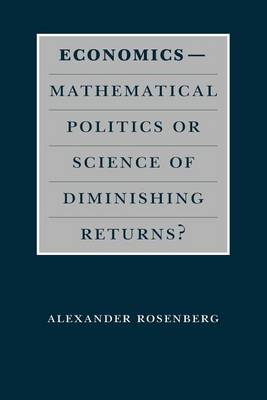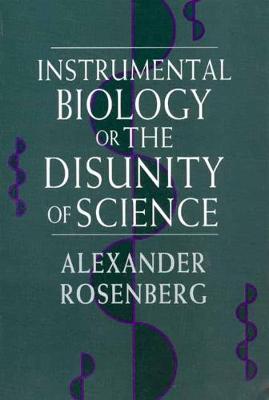Science & Its Conceptual Foundations S.
2 total works
Economics--Mathematical Politics or Science of Diminishing Returns?
by Alexander Rosenberg
Published 1 October 1992
Economics today cannot predict the likely outcome of specific events any better than it could in the time of Adam Smith. This is Alexander Rosenberg's controversial challenge to the scientific status of economics. Rosenberg explains that the defining characteristic of any science is predictive improvability—the capacity to create more precise forecasts by evaluating the success of earlier predictions—and he forcefully argues that because economics has not been able to increase its predictive power for over two centuries, it is not a science.
Do the sciences aim to uncover the structure of nature, or are they ultimately a practical means of controlling our environment? This work argues that while physics and chemistry can develop laws that reveal the structure of natural phenomena, biology is fated to be a practical, instrumental discipline. Because of the complexity produced by natural selection and because of the limits on human cognition, scientists are prevented from uncovering the basic structure of biological phenomena. Consequently, biology and all of the disciplines that rest upon it, such as psychology and the other human sciences, must aim to provide practical tools for coping with the natural world rather than a complete theoretical understanding of it.

